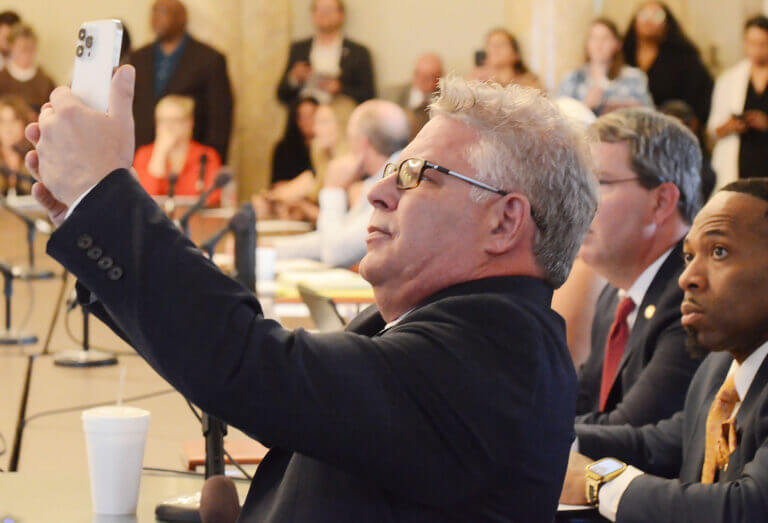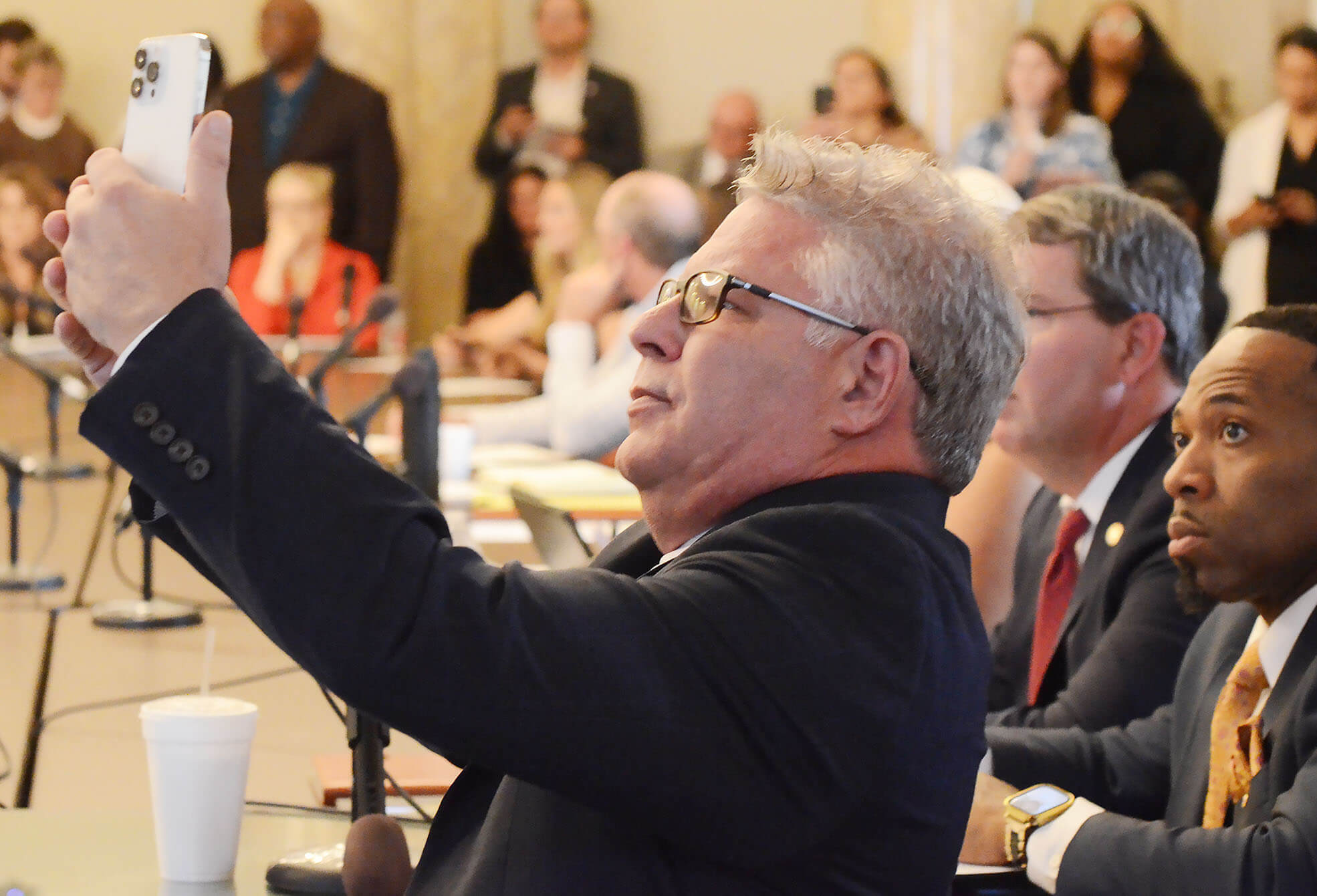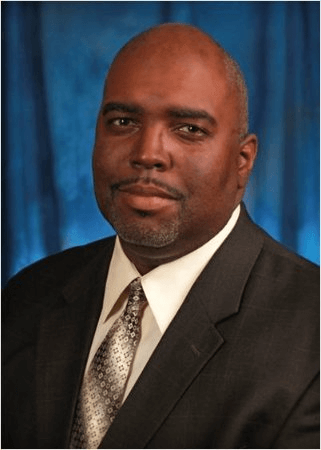

Editor’s note: This essay is part of Mississippi Today Ideas, a platform for thoughtful Mississippians to share fact-based ideas about our state’s past, present and future. You can read more about the section here.
As a parent with two children in public schools, I attended the recent public hearing of the Select Legislative Committee on School Choice held at the state Capitol.
The meeting was standing room only as the committee heard testimony from researchers who were school choice advocates. I wanted to ask a rather simple question, how is “school choice” a real answer to what the proponents of school choice are saying is the problem they are trying to solve – too many (black and brown) students “trapped” in failing schools?
The presenters posited school choice, such as allowing parents to choose from a variety of educational options by making public tax dollars available to parents to fund their children’s education in any format or context the parents deem is best for their children, as a solution. In this perspective, where is the real solution for children and families in so-called “failing” schools?

I am disheartened by the rhetoric around school choice in our state. The support for “school choice” has proven to be little more than an ages-old scheme from some political leaders in our state to funnel public money into private, segregated schools. I wonder if supporters really think that creating educational vouchers and tax credit schemes will really solve the challenge of children being taught in “failing” schools? What are the real choices parents have if their children are “trapped” in a “failing” school?
The presenters suggested that they could take the proposed voucher, which would be worth about $8,000, and hire a tutor or enroll their children in “micro-schools” where a small group of families contract with a teacher to teach children in small classes of five to 10 students
The presenters also suggested private tutors, homeschooling, or even using the voucher to pay full tuition and cost of attendance to a yet to be opened private school that would cater to the needs of these children and only charge about $8,000 per year. I cringe at thinking about the quality of education that could be offered by such a school.
Ultimately, the funding schemes proposed would siphon much needed tax dollars from our already underfunded public schools and into a variety of educational contexts (including private schools that have origins in our dark, segregationist past) with little to no accountability for how those dollars would be spent.
Why would any citizen see this school funding system as a better way forward for our state? None of the alternatives suggested would make much practical sense for the families that are said to be targeted by these “reforms.”
Nor does there seem to be a real citizen demand for a “school choice” reform law that calls for tax dollars to be given directly to parents rather than schools that are proven to be making great gains in educating our children.
Are the public schools perfect? Of course not.
Reforms are needed to help families who are in communities where the schools are rated as “failing.” The most important reform being fully funding the schools in those communities, not subjecting them to less resources for the neediest children.
One glaring reality that was not mentioned one time in the hearing was the impact that poverty has on schooling. What is seen mainly as a failing school cannot be divorced from the concentrated poverty that is evidenced in most of the communities in which failing schools are located.
Poverty’s impact of academic skill development in children is well documented but often overlooked in school policy debates. The assumption is that all children can learn if the schools “just did a better job” with the resources already given to them.
While teaching and learning can always improve, the biggest factor in the academic skill development of children is the social economic class of their family and community.
It is no coincidence that the highest rated schools in Mississippi are in the most affluent communities.This isn’t because they all have better teachers and leaders in schools, or innately “smarter” children, but because the children in these communities are advantaged by access to more resources such as healthcare, more community support, better educated parents and networks, and safe, more stable homes and communities. These social economic factors weigh heavily in the academic skill development of all children.
If a school is over-concentrated with children living in poverty, due mainly to residential segregation, it is much harder to provide children with the educational experiences and support they need to actualize their full potential.
Yes, we all want every child to have access to the best education that works for them and helps them fulfill their dreams and potential. We can disagree on the ways to make this happen, but we cannot step backward as a state and allow for the most advantaged to gain even more resources at the expense of the least advantaged in our communities.
Public schools are a part of the commitment we make to provide all citizens with the tools they need to live the best life they can, with the responsibilities of freedom, as they pursue the happiness that makes life enjoyable. When we do this, we enhance the quality of life and affirm the humanity of everyone.
A “school choice” scheme that further divests in the humanity of some of our children is a pathway to an even more segmented society that history has taught us doesn’t help us grow as a state.
Bio: Chauncey R. Spears is a veteran educator and community champion with two children in the public schools. He is the innovation hub manager at the Beloved Community Partnership with the International museum of Muslim Cultures. He previously worked for the Alluvial Collective and for the Mississippi Department of Education. He says he is a sucker for engaging conversations, Tennessee Titans football and a medium rare, char-grilled T-bone steak.
- State fire marshal is investigating troubled Unit 29 at Parchman prison - February 26, 2026
- Mississippi’s Winter Storm Fern losses exceed $107 million, state insurance department says - February 26, 2026
- DNA evidence linked to a Greenville homicide is missing. Now the finger-pointing begins - February 26, 2026